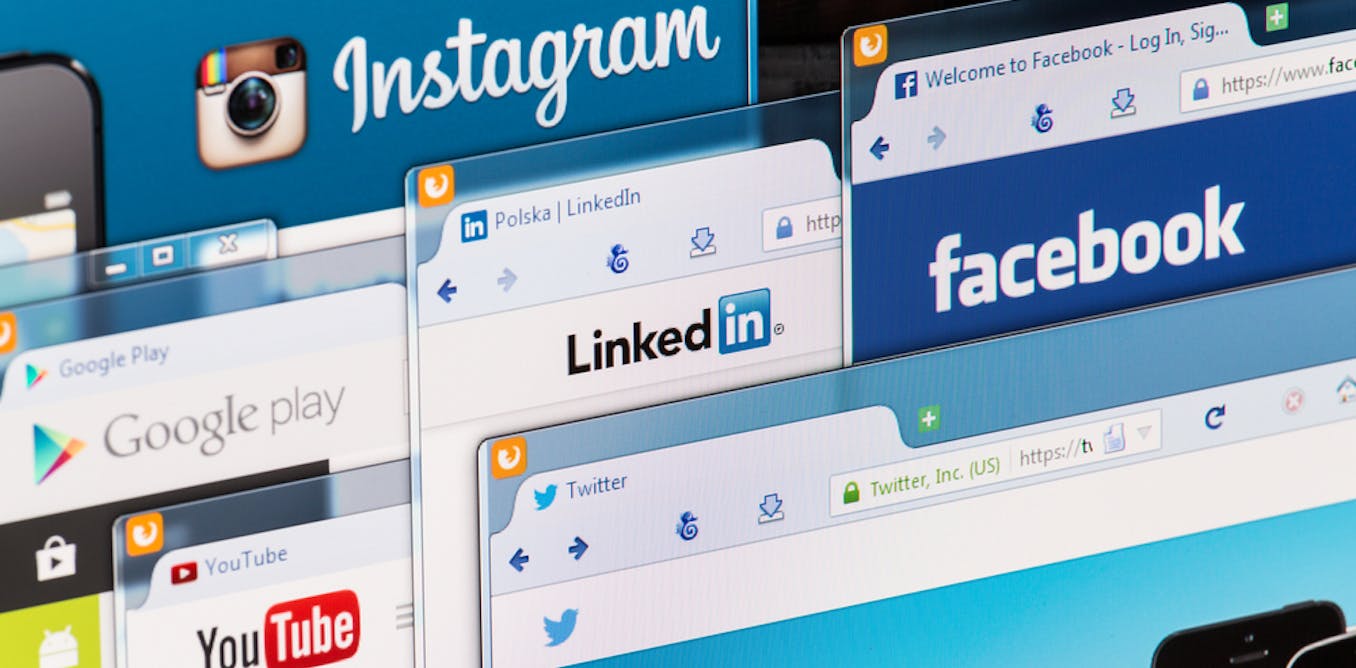Our digital lives mean memories and life online can continue even after death
Memory is a way of holding onto the things you love, the things you are, the things you never want to lose.
So said Kevin Arnold in The Wonder Years. Now that we spend so much time online, our digital lives have become extensive: trails of memories on the web of what we’re doing, where, and who we’re doing it with. And these posts will still be visible for many years to come, outliving the events that inspired them – and even those who posted them.
Unfortunately the management of this data is complicated. The online platforms we use – Facebook, Twitter, Google and so on – own the data we generate while using them. Getting control of it can be difficult – this is why Facebook has just outlined its Legacy Contact feature in the US. Similar to Google’s Inactive Account Manager, it lays out who can control accounts after their owner’s death, returning some control over their data to those mourning their loss.
Data can be difficult in life as well as in death. Valentines’ Day will no doubt bring forth torrents of loved-up tweets, cosy Instagram shots from romantic weekends away, wedding proposals posted to YouTube, and more changes to Facebook relationships statuses than you can shake a stick at. And let’s not forget instant chat either, with Skype and Snapchat allowing lovers who are apart this weekend to be intimate through more inventive means.
Such digital displays of affection provide us with a glimpse of how social networks can easily become folded into our love lives, as it’s often through technology – mobile phones, tablets and laptops – that we choose to demonstrate our love. In doing so we produce lots of data that, intentionally or not, documents and augments our memories.
There are websites and apps that promise to help singletons meet that special somebody, and others which aim to help couples stay together. Social networks in particular have become entangled in our unfolding relationships, documenting, planning and helping us record memories. But it’s important to remember that this can sometimes have unforeseen consequences.
Making and breaking relationships
Social networking is notorious for causing relationship problems. Facebook and Twitter have been known to facilitate emotional affairs and aid acts of digital infidelity. A University of Missouri study in 2014 suggested that using Twitter could eventually become a cause for divorce between some couples. Likewise, a law firm recently noted that Facebook was cited in more than a third of divorce cases it examined.
The fallout from the data created by our digital activities can come back to cause us haunt us too: salacious search histories, banking logins that hide assets, or emails that reveal secret trysts. “Liking” your ex’s latest status update, or favouriting the tweet of an attractive colleague, might be more trouble than it’s worth. The recent viral video of two office workers caught in a compromising late night rendezvous by bystanders serves as a warning that the data other people create about us can become just as troubling as that which we create ourselves.
The snapshots and short videos of their encounter spread rapidly across social media, with the footage itself the first to reveal to a shocked wife that her husband was involved in a – very public – affair.

Leigh Prather/Shutterstock
Keepsakes that linger
So the paperless paper trail of data we leave behind us is unlike traditional tokens of affection that we accumulate throughout our lives. Unlike a box of photos or mementos, we are neither usually aware of the huge volumes of data that exist about us and our relationships, nor are we in control of it.
And it’s most clearly when the relationship cools that this data becomes visible as the vast collections of photos, status updates, videos, playlists, chat histories, emails text messages suddenly taking on a different perspective; haunting, mocking, reminding us of love lost.
It can prove difficult, if not impossible, to untangle ourselves from this data, and make the decision of whether to hold on to it, or try delete it. It can often return to haunt us, for example through acts of online harassment and revenge porn – when explicit images live on beyond the life of the relationship that spawned them, much to the distress of those involved.
Yet there is an upside to our digital legacies, too: they provide a fascinating insight into contemporary lives, and allow us to look back and reminisce easily. They can become a positive focus for overcoming and living with loss – both the loss of love, or of very close relationships with friends and family who have died, with their trail of data becoming a trove of treasured memories.
Maybe this Valentine’s Day we need to keep in mind the words of the author Brodi Ashton: “Remembering is easy. It’s forgetting that’s hard.”

